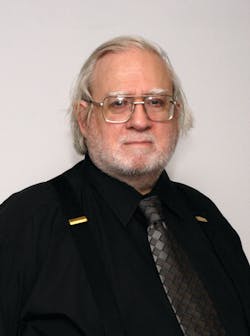William D. Kennedy, an internationally recognized expert on tunnel ventilation who was instrumental in the development of tunnel ventilation systems for road and rail tunnels worldwide, died on June 23 at the age of 69.
During a 46-year career with Parsons Brinckerhoff, Kennedy, a vice president and senior engineering manager, participated in the development of tunnel ventilation systems for public transit systems around the world
Kennedy and a small group of Parsons Brinckerhoff colleagues were part of a joint venture team of Parsons Brinckerhoff, DeLeuw, Cather & Company, and Kaiser Engineers, that developed the Subway Environmental Design Handbook under contract to the U.S. Department of Transportation in the early 1970s. As part of that project, Kennedy led the development of the Subway Environment Simulation (SES) software program. Now in its fifth version, SES allows engineers to mathematically model aspects of the subway environment on a second-by-second basis; it is considered the standard tool for the analysis and design of transit systems worldwide.
In the 1980s, Kennedy and his colleagues developed the concept of platform screen doors for the Singapore mass rapid transit system that prevented heat from the subway tunnels from entering station platforms. In the 1990s, Kennedy contributed to the development of SOLVENT, a three-dimensional computational fluid dynamics (CFD) fire-ventilation program for road tunnels.
Recently, Kennedy contributed to the development of ventilation systems for projects such as the extension of the No. 7 subway in New York City, the Purple Line subway in Los Angeles, the Delhi Metro, and rail and road tunnels in Istanbul.
In March of 2012, Kennedy received the prestigious 2012 Achievement Award at the Fifth International Symposium on Tunnel Safety and Security, which cited him for his “long and illustrious career in ventilation engineering of tunnels” and called his lifetime body of work “a shining example of wedding practice and theory in the design of tunnels.”
Kennedy, a registered professional engineer in three states, was active in a wide range of professional organizations, including the American Society of Mechanical Engineers; the American Society of Heating, Refrigeration and Air Conditioning Engineers; the American Public Transportation Association; and the National Fire Protection Association. He was a member of the advisory board to the Columbia University Department of Mechanical Engineering since 2007, and he served as a member of the organizing committee of the International Symposia on the Aerodynamics and Ventilation of Vehicle Tunnels from 1985 through 2011. Kennedy received a bachelor’s degree in mechanical engineering from Union College and a master’s degree in mechanical engineering from Columbia University.
Kennedy is survived by parents, Edward and Rae Kennedy; his wife, Patricia Kennedy; daughters Kathleen Kennedy and Sheila Miles, and four grandchildren.


